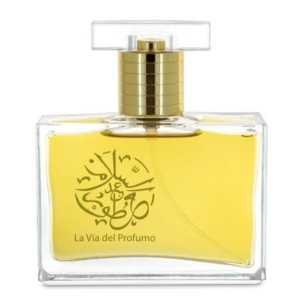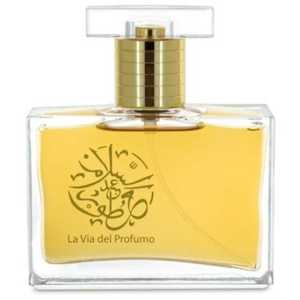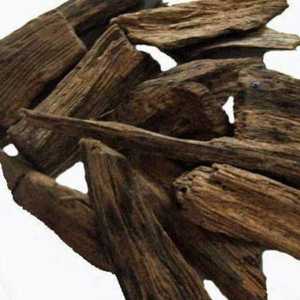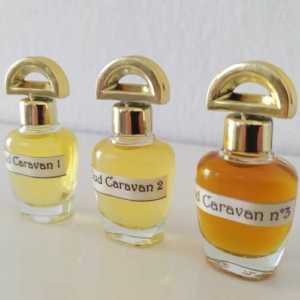Oud Perfumes
Oud perfume, also known as oud attar or oud scent, is believed to be the perfume of royal and majestic people. Oud has been respected by monarchs, emperors, kings, and even several dynasties for centuries as a royal perfume and medicine throughout the world.
Oud is one of the most expensive natural ingredients on the globe. Thus, oud perfumes made from oud obviously fall into the most expensive perfume categories.
Table of contents
- What is oud?
- History of oud
- The value of oud perfume oil
- Benefits of oud
- Uses of oud in the perfumery industry
- How to use oud perfume
- Final words
What is Oud?
Oud is derived from the wood of the agar tree (Aquilaria malaccensis) that typically grows in Southeast Asian countries, especially in India, Bhutan, Bangladesh, Indonesia, Malaysia, Singapore, Philippines, and Thailand.
When a specific mold infection occurs in the wood, the plant excretes a resinous substance that is dark and highly scented. This resin is often called “black gold” or “liquid gold”. The term “Oud” refers to both the resinous dark wood and the liquid oil distilled from it.
History of Oud
The smell of infected agarwood is strong and complex, with very few or no similarities. The smell of an oud perfume is mainly oriental woody with soft fruity floral notes. The smoke of burnt wood is also characterized by several tremendous aromatic flavors. Therefore, agarwood and its essential oils have been respected for centuries with great religious and cultural significance.
Oud gained great popularity in ancient civilizations, being described as a scented substance as early as 1400 BCE in ancient written texts of India.
Oud is also described in the Hebrew Bible as a perfumery compound along with myrrh and cassia. Great Greek physician Pedanius Dioscorides described oud in his famous book “De Materia Medica” (65 CE). He mentioned many medicinal properties, tastes, and other uses of oud.
In Islamic culture, the use of oud as a medicinal ingredient is also mentioned in the Sahih Muslim, the second most authentic collection of hadiths after Sahih Bukhari, written by Muhammad ibn Ismāʿīl al-Bukhārī (810-870).
In Indian Traditional Medicine, also known as Ayurveda, oud is recorded in “Susruta Samhita”, one of the oldest texts of medicine and surgery worldwide.
In Vietnam, oud is described in the chronicle “Strange things from the south” in the contemporary ancient age of the third century of the Common Era.
However, oud is highly honored in the Southeast countries and around the world since ancient times. It’s respected in Islam, Hinduism, and Chinese Folk Religions.
The Value of Oud Perfume Oil
It’s assumed that for every 10 oud trees in the wild, only one will have mold-infected heartwood. Expert perfumers discover these old agar trees due to their superior richness of resinous aroma. Unfortunately, many of these species are now listed as threatened habitats.
As the resin is excreted only after the specific mold infection, it’s estimated that only 2 percent of these rare trees can produce the aromatic resin. This contributes to its position as the most expensive perfumery ingredient in the essential oil market.
The annual global market of oud is estimated at around 6 to 8 billion US dollars and is rapidly growing; its value is often calculated as 1 ½ times the value of gold. Hence, raw oud essential oil is referred to as liquid gold.
Benefits of Oud
Oud essential oil has diverse applications ranging from perfumery to spiritual, and therapeutic to medicinal. Here are some of the benefits of Oud perfume oil –
- Oud is mainly used as a perfumery ingredient. Oud perfume is a mark of majestic status. Oud perfumes are widely used worldwide in social, spiritual, and home ceremonies.
- Oud has analgesic, anti-inflammatory, and antibacterial effects. Therefore, oud is used in several pain and skin conditions.
- In Materia Medica, oud is described as a healing substance to treat liver and lung pains, dysentery, and stomach issues.
- Oud perfume oil is used to make incense products. Oud wood chips and incense products are highly sought after by very rich people.
- Oud perfume is widely used as a therapeutic agent in aromatherapy. The strong pleasant scent of oud perfume oil helps to reduce negative emotions, depression, anxiety, and stress. It improves mental relaxation, mood, and confidence.
- Oud is considered to have aphrodisiac effects and is highly respected in various traditional medicines.
Uses of Oud in Perfumery
In today’s age of complex perfumery compositions, Oud has gained significant popularity and interest. In recent years, many designer perfumery brands have launched their fragrance notes using (synthetic) oud.
While used in fragrance formulations, oud is mostly a base note, which forms a perfume’s foundation. Typically, base notes are very rich and long-lasting, and tend to remain up to 6 hours or more on the skin.
Oud is mainly featured in synthetic versions due to its scarcity and cost. Very few natural niche perfumers, who focus to the extreme on quality, produce natural oud perfumes. While most wood notes spread earthy smells, oud spreads also musky, sweet, and fruity scents.
How to Use Oud Perfume
You can use Oud perfume oil on your wrists and then rub the perfume gently with your fingers.
Oud perfume oil can be applied to the ear regions and between the neck and the chest.
You can also apply Oud perfume oil over your shoulders and other parts of your clothes.
You can make your hanky scented by rubbing a very small amount of oud oil on your palm and then rubbing your palm with your hanky.
You may put some oud perfume oil on your bracelets, rings, watches, and other wearing accessories.
Oud perfume oil may stain your fabric. Don’t apply oud perfume directly on the clothes to avoid the stain. You can dab oud perfume oil on your palm using your fingers. Rub the oil gently and then run your palms over your clothes.
Final Words
Oud oil may seem offensive in its raw condition. But when properly formulated and blended with other ingredients, it produces pleasant, musky, and animalic scents that have very rare or no natural analogs across the globe.
However, wearing oud perfume is a unique fashion that cannot be seen but smelled by everyone. But to experience the real smells of oud, you should purchase a natural oud perfume instead of a synthetic version.






















